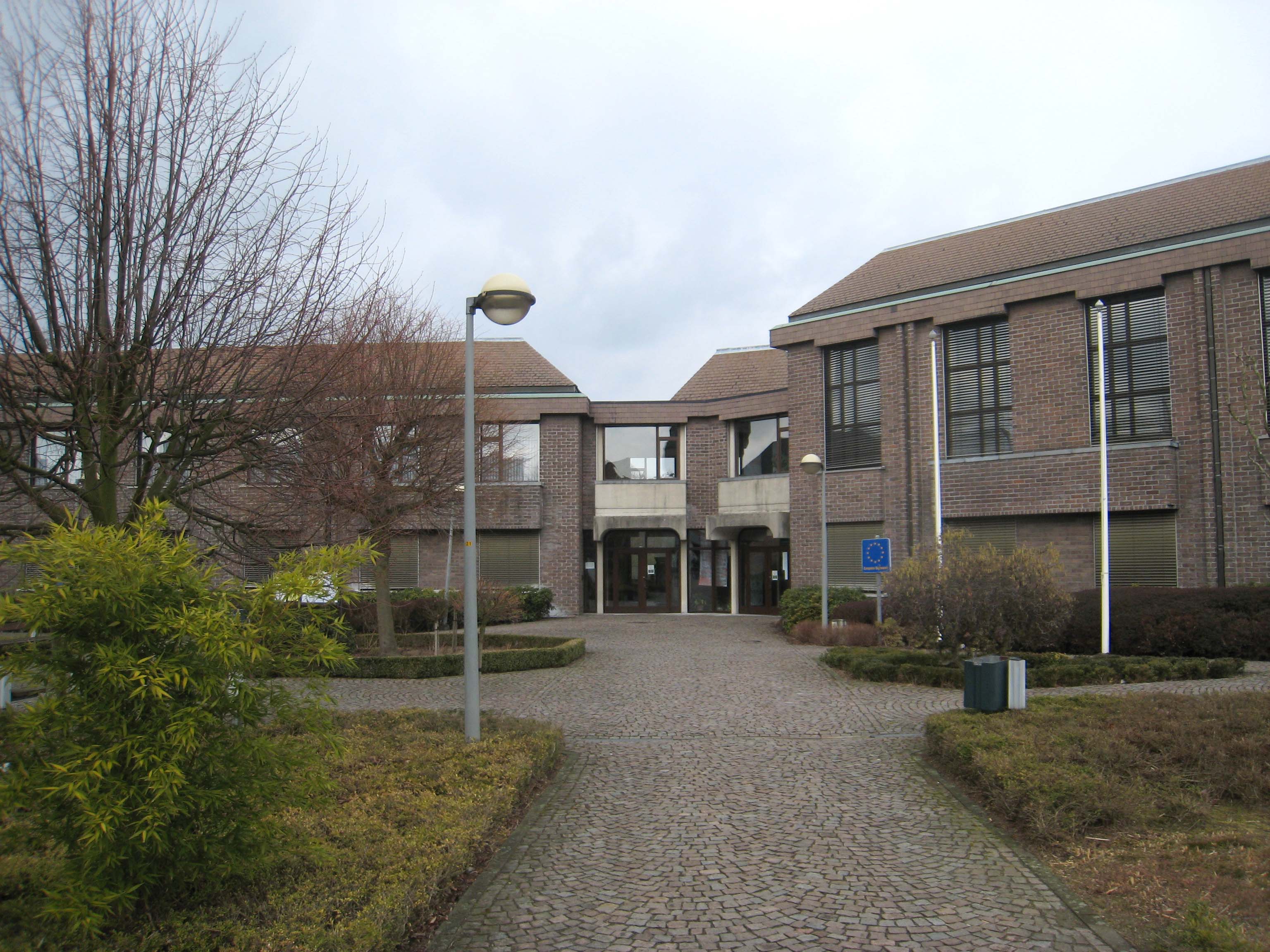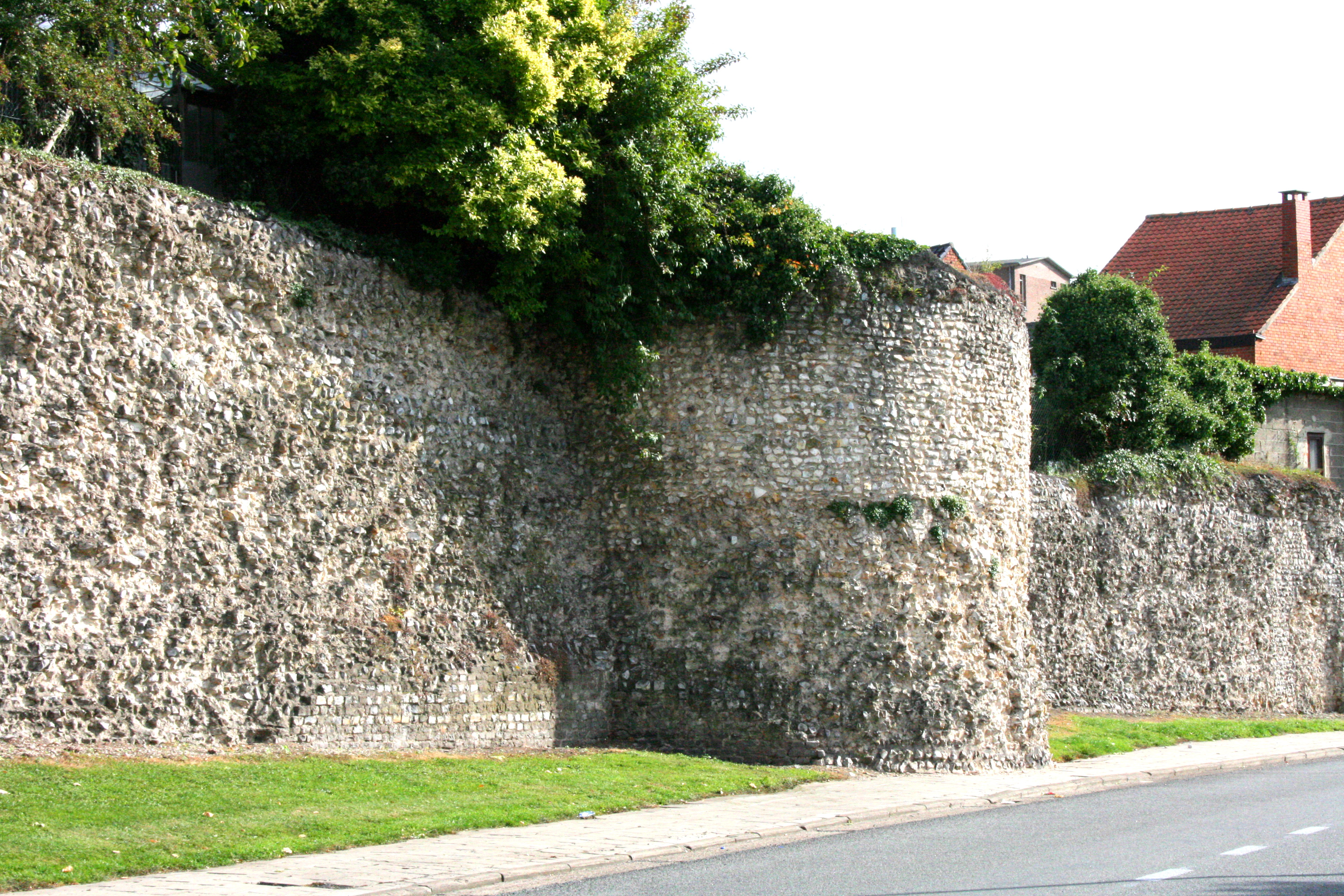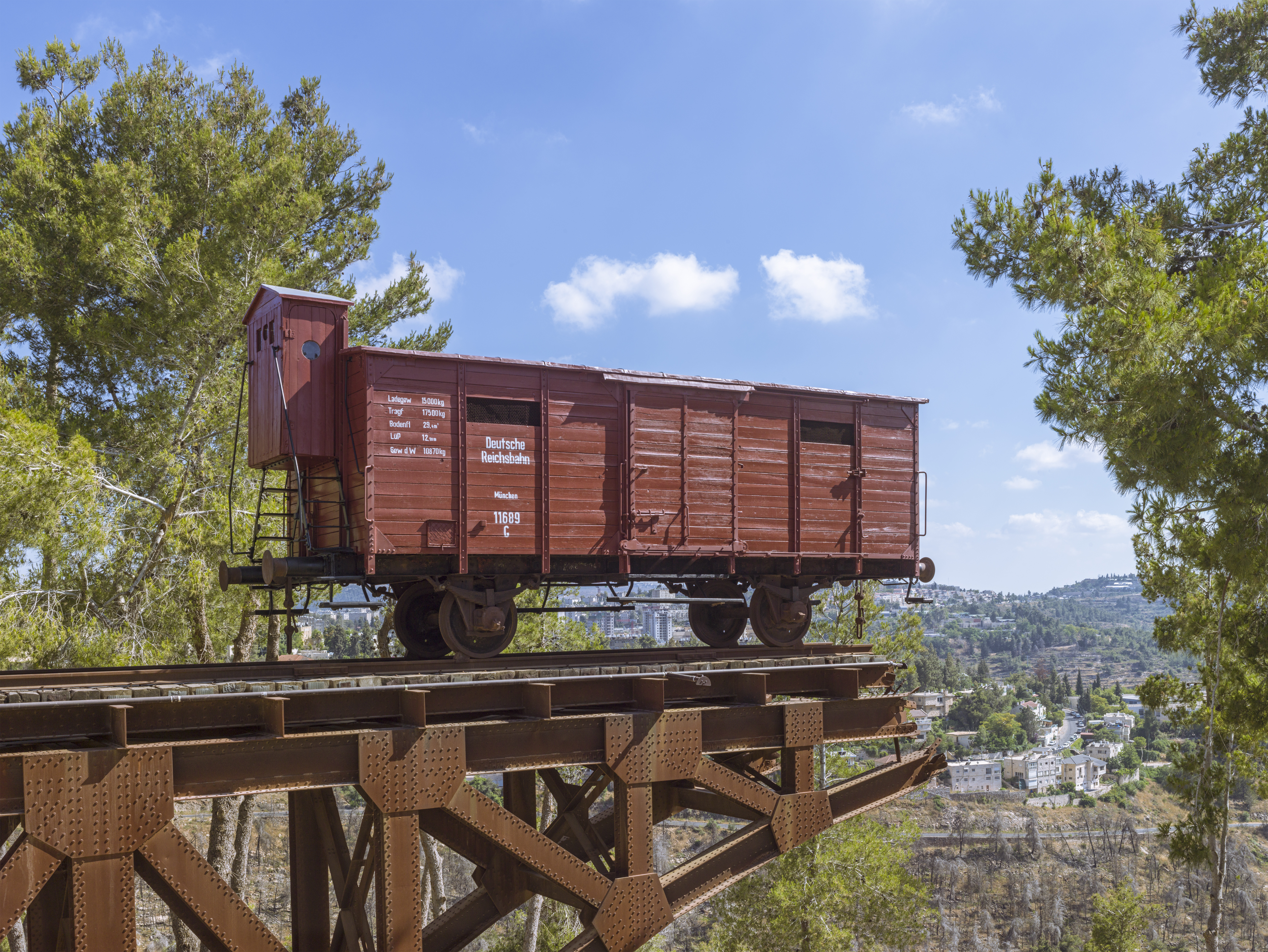|
Twentieth Convoy
On 19 April 1943, members of the Belgian Resistance stopped a Holocaust train and freed a number of Jews who were being transported to Auschwitz concentration camp from Mechelen transit camp in Belgium, on the twentieth convoy from the camp. In the aftermath of the attack, a number of others were able to jump from the train too. In all, 233 people managed to escape, of whom 118 ultimately survived. The remainder were either killed during the escape or were recaptured soon afterwards. The attack was unusual as an attempt by the resistance to free Jewish deportees and marks the only mass breakout by deportees on a Holocaust train. Background Between 70,000 and 75,000 Jews were living in Belgium in 1940. Few were long-term residents and many entered the country during the Interwar to flee persecution in Germany and Eastern Europe. Soon after the German invasion of Belgium in May 1940, the German occupation authorities introduced a number of anti-Jewish laws. In 1942, the yellow bad ... [...More Info...] [...Related Items...] OR: [Wikipedia] [Google] [Baidu] |
Boortmeerbeek
Boortmeerbeek () is a town in the Belgium, Belgian province of Flemish Brabant. The municipality comprises the towns of Boortmeerbeek proper, Schiplaken and Hever, Belgium, Hever. The total area is 18.64 km² which gives a population density of 620 inhabitants per km². Related people * Jan van Muysen, built the church in 1451 * Charles de Santa Cruz; knight, lord of Boortmeerbeek; married to Susanne de Molenare. ** Juan Franscisco de Santa Cruz, Lord of Boortmeerbeek, married to Marie Antoinette Baltine Tucher. See also * Twentieth convoy References Televisiedecor Boortmeerbeek is meerdere malen een decor voor series op tv geweest. De bekende serie nonkel jef werd er grotendeels opgenomen en ook familie is vaak te gast in Boortmeerbeek voor opnames. External links * boortmeerbeek.beXXste KonvooiHeemkring RavensteynBoortmeerbeek.org Municipalities of Flemish Brabant {{FlemishBrabant-geo-stub ... [...More Info...] [...Related Items...] OR: [Wikipedia] [Google] [Baidu] |
Romani People
The Romani (also spelled Romany or Rromani , ), colloquially known as the Roma, are an Indo-Aryan ethnic group, traditionally nomadic itinerants. They live in Europe and Anatolia, and have diaspora populations located worldwide, with significant concentrations in the Americas. In the English language, the Romani people are widely known by the exonym Gypsies (or Gipsies), which is considered pejorative by many Romani people due to its connotations of illegality and irregularity as well as its historical use as a racial slur. For versions (some of which are cognates) of the word in many other languages (e.g., , , it, zingaro, , and ) this perception is either very small or non-existent. At the first World Romani Congress in 1971, its attendees unanimously voted to reject the use of all exonyms for the Romani people, including ''Gypsy'', due to their aforementioned negative and stereotypical connotations. Linguistic and genetic evidence suggests that the Roma originated ... [...More Info...] [...Related Items...] OR: [Wikipedia] [Google] [Baidu] |
Simon Gronowski
Simon Gronowski (born October 12, 1931) is a Doctor of Law, from the Free University of Brussels, a jazz pianist, and the president of the Union of Jewish deportees in Belgium. Gronowski was born in Brussels, and survived the Holocaust by escaping deportation in Convoy No. 20 train, on 19 April 1943, which would have taken him to Auschwitz. He then lived through the rest of the war in hiding, with his father Léon Gronowski. PUSH Opera In 2014, Simon Gronowski met British composer Howard Moody at a performance of his opera Sinbad at La Monnaie Opera House in Brussels; Simon Gronowski told the composer the story of his escape and life and ended with the phrase "Ma Vie N'est Que Miracles". Moody was so moved he promised to write his next opera about Simon that night. His opera PUSH tells the story of Simon's escape from the 20th Convoy Train on April 19, 1943 and how his mother pushed Simon off the train. The opera PUSH was premiered in Bexhill, England at the De La Warr Pavi ... [...More Info...] [...Related Items...] OR: [Wikipedia] [Google] [Baidu] |
Tongeren
Tongeren (; french: Tongres ; german: Tongern ; li, Tóngere ) is a city and municipality located in the Belgian province of Limburg, in the southeastern corner of the Flemish region of Belgium. Tongeren is the oldest town in Belgium, as the only Roman administrative capital within the country's borders. As a Roman city, it was inhabited by the Tungri, and known as ''Atuatuca Tungrorum'', it was the administrative centre of the ''Civitas Tungrorum'' district. History ''Atuatuca Tungrorum'' The Romans referred to Tongeren as ''Aduatuca Tungrorum'' or ''Atuatuca Tongrorum'', and it was the capital of the large Roman province of ''Civitas Tungrorum'', an area which covered modern Belgian Limburg, and at least parts of all the areas around it. Before the Roman conquests, this area was inhabited by the group of Belgic tribes known as the ''Germani cisrhenani''. (Despite being known as the ''Germani'', whether they spoke a Germanic language is debated, and the names of their tribes ... [...More Info...] [...Related Items...] OR: [Wikipedia] [Google] [Baidu] |
Tienen
Tienen (; french: Tirlemont ) is a city and municipality in the province of Flemish Brabant, in Flanders, Belgium. The municipality comprises Tienen itself and the towns of Bost, Goetsenhoven, Hakendover, Kumtich, Oorbeek, Oplinter, Sint-Margriete-Houtem and Vissenaken. On 1 January 2017, Tienen had a total population of 34,365. The total area is which gives a population density of . History In the early Middle Ages, the town was probably ruled by an old German family Thienen. During the 1635 to 1659 Franco-Spanish War, Tienen was part of the Spanish Netherlands and was captured by a combined Franco-Dutch army in May 1635. Its capture resulted in one of the most serious atrocities of the Dutch Revolt; the town was sacked, over 200 civilians killed and many buildings damaged, including Catholic churches and monasteries. This ended Dutch prospects of winning over the predominantly Catholic population of the Southern Netherlands. After the 1714 Treaty of Utrecht, the town ... [...More Info...] [...Related Items...] OR: [Wikipedia] [Google] [Baidu] |
Sicherheitspolizei
The ''Sicherheitspolizei'' ( en, Security Police), often abbreviated as SiPo, was a term used in Germany for security police. In the Nazi era, it referred to the state political and criminal investigation security agencies. It was made up by the combined forces of the Gestapo (secret state police) and the ''Kriminalpolizei'' (criminal police; Kripo) between 1936 and 1939. As a formal agency, the SiPo was incorporated into the Reich Security Main Office (RSHA) in 1939, but the term continued to be used informally until the end of World War II in Europe. Origins The term originated in August 1919 when the ''Reichswehr'' set up the ''Sicherheitswehr'' as a militarised police force to take action during times of riots or strikes. Owing to limitations in army numbers, it was renamed the ''Sicherheitspolizei'' to avoid attention. They wore a green uniform, and were sometimes called the "Green Police". It was a military body, recruiting largely from the ''Freikorps'', with NCOs and offi ... [...More Info...] [...Related Items...] OR: [Wikipedia] [Google] [Baidu] |
Leuven
Leuven (, ) or Louvain (, , ; german: link=no, Löwen ) is the capital and largest city of the province of Flemish Brabant in the Flemish Region of Belgium. It is located about east of Brussels. The municipality itself comprises the historic city and the former neighbouring municipalities of Heverlee, Kessel-Lo, a part of Korbeek-Lo, Wilsele and Wijgmaal. It is the eighth largest city in Belgium, with more than 100,244 inhabitants. KU Leuven, Belgium's largest university, has its flagship campus in Leuven, which has been a university city since 1425. This makes it the oldest university city in the Low Countries. The city is home of the headquarters of Anheuser-Busch InBev, the world's largest beer brewer and sixth-largest fast-moving consumer goods company. History Middle Ages The earliest mention of Leuven (''Loven'') dates from 891, when a Viking army was defeated by the Frankish king Arnulf of Carinthia (see: Battle of Leuven). According to a legend, the city's red ... [...More Info...] [...Related Items...] OR: [Wikipedia] [Google] [Baidu] |
Jean Franklemon
Jean may refer to: People * Jean (female given name) * Jean (male given name) * Jean (surname) Fictional characters * Jean Grey, a Marvel Comics character * Jean Valjean, fictional character in novel ''Les Misérables'' and its adaptations * Jean Pierre Polnareff, a fictional character from ''JoJo's Bizarre Adventure'' Places * Jean, Nevada, USA; a town * Jean, Oregon, USA Entertainment * Jean (dog), a female collie in silent films * "Jean" (song) (1969), by Rod McKuen, also recorded by Oliver * ''Jean Seberg'' (musical), a 1983 musical by Marvin Hamlisch Other uses * JEAN (programming language) * USS ''Jean'' (ID-1308), American cargo ship c. 1918 * Sternwheeler Jean, a 1938 paddleboat of the Willamette River See also *Jehan * * Gene (other) * Jeanne (other) * Jehanne (other) * Jeans (other) * John (other) John is a common English name and surname: * John (given name) * John (surname) John may also refer to: New Testa ... [...More Info...] [...Related Items...] OR: [Wikipedia] [Google] [Baidu] |
Yad Vashem
Yad Vashem ( he, יָד וַשֵׁם; literally, "a memorial and a name") is Israel's official memorial to the victims of the Holocaust. It is dedicated to preserving the memory of the Jews who were murdered; honoring Jews who fought against their Nazi oppressors and Gentiles who selflessly aided Jews in need; and researching the phenomenon of the Holocaust in particular and genocide in general, with the aim of avoiding such events in the future. Established in 1953, Yad Vashem is located on the western slope of Mount Herzl, also known as the Mount of Remembrance, a height in western Jerusalem, above sea level and adjacent to the Jerusalem Forest. The memorial consists of a complex containing two types of facilities: some dedicated to the scientific study of the Holocaust and genocide in general, and memorials and museums catering to the needs of the larger public. Among the former there are a research institute with archives, a library, a publishing house, and an educational ... [...More Info...] [...Related Items...] OR: [Wikipedia] [Google] [Baidu] |
Holocaust
The Holocaust, also known as the Shoah, was the genocide of European Jews during World War II. Between 1941 and 1945, Nazi Germany and its collaborators systematically murdered some six million Jews across German-occupied Europe; around two-thirds of Europe's Jewish population. The murders were carried out in pogroms and mass shootings; by a policy of extermination through labor in concentration camps; and in gas chambers and gas vans in German extermination camps, chiefly Auschwitz-Birkenau, Bełżec, Chełmno, Majdanek, Sobibór, and Treblinka in occupied Poland. Germany implemented the persecution in stages. Following Adolf Hitler's appointment as chancellor on 30 January 1933, the regime built a network of concentration camps in Germany for political opponents and those deemed "undesirable", starting with Dachau on 22 March 1933. After the passing of the Enabling Act on 24 March, which gave Hitler dictatorial plenary powers, the government began isolating Je ... [...More Info...] [...Related Items...] OR: [Wikipedia] [Google] [Baidu] |
Robert Maistriau
Robert Maistriau (March 13, 1921- September 26, 2008) was an active member of the Belgian underground resistance and was recognized as a Righteous Among the Nations from Belgium. Maistriau is known for his part in an operation against a deportation train to Auschwitz. Early life Maistriau was born in Woluwe-Saint-Lambert on March 13, 1921. His father was a military doctor during World War I. In 1939, when he was 18, he started to study medicine. At age 22, Maistriau decided to join a Belgian resistance group called “Comité de Défense des Juifs”. Activity during WWII On April 19, 1943, Maistriau and two other members of the resistance - Jean Franklemon ( fr) and Maistriau’s childhood friend, Youra Livchitz ( fr), executed a plan to rescue Jews from the twentieth transport. They did so by stopping the train using a hurricane lamp covered in red silk paper at around half past nine at night, while it was dark outside. The driver of the train was tricked by the red l ... [...More Info...] [...Related Items...] OR: [Wikipedia] [Google] [Baidu] |





